When sportsbooks first started becoming legalized, one of the main advertising points was the reliable nature of the payouts. Compared to offshore sportsbooks or a local underground bookie who could withhold payment without consequence, sites like FanDuel and Caesars would be subject to state laws that forced them to pay out any and all winnings. For the overwhelming majority of sports bettors, this is exactly what happens; winning bets are graded quickly and withdrawals are processed and paid quickly too.
For some people however, this has not been the case. More frequently we are hearing stories of legal, online sportsbooks refusing to pay out big winners because of things like vague violations of terms and conditions and “obvious errors” that are never explained fully. In a recent report, The Washington Post highlighted how exactly this is done and some of the people it has impacted.
Sportsbooks Hiding Behind Terms and Conditions
When Tennessee resident Chris Kozak placed a series of improbable NHL wagers on Hard Rock Sportsbook, he had no idea how life-altering they would prove to be. By the time the dust settled, all three of these wagers were graded as wins and Mr. Kozak was due to be paid over $120,000. The joy that came with these winning wagers did not last long though, as Kozak saw that all of the wagers had been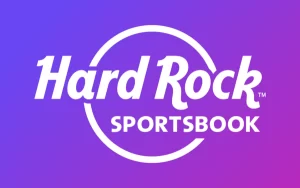 voided by Hard Rock.
voided by Hard Rock.
Chris Kozak did what anyone would do and reached out to Hard Rock for an explanation. After multiple days, Hard Rock replied saying that the payouts he was due were “obvious errors” and that he was not due anything apart from a refund equal to his wagers. Mr. Kozak immediately refuted these claims, at which point Hard Rock attempted to “renegotiate” the payout. In other words, Hard Rock attempted to swindle Kozak into taking a payout less than the amount he was actually due. Kozak declined and when he inquired as to what the supposed “errors” were and what made them obvious, Hard Rock was never able to offer an explanation.
This song and dance went on for a while, but once Kozak reached out to news outlets who then began asking questions to Hard Rock directly, the company suddenly and inexplicably paid the Tennessee resident in full.
A Worrying and Increasing Trend
While Christopher Kozak’s story may seem like a unique situation borne from some sort of mistake, people who have looked into the matter say that this is likely not true at all. In fact, sportsbooks may be increasingly relying upon vague language in their site’s terms and conditions to void big wins.
Across all states where online sports betting is legal, there is agreement that a truly obvious error in the posting of the line should result in voided bets. For instance, if an NFL team is mistakenly listed as 130 point favorites rather than 13 point favorites, few people will argue that the sportsbook has to honor winning wagers on a spread as ridiculous as 130 points. What we are seeing more recently is sportsbooks voiding wagers in situations where the error is not obvious at all. In some states, sportsbooks are able to void wagers if it is later found out that the sportsbook in question was offering odds that varied dramatically from competitors. It does not end there either, as the power of determining whether a winning wager is actually a winner or not lies primarily in the hands of the sportsbooks. Cases like Chris Kozak are able to be solved because of the high-dollar value behind them, but in instances where people have $1,000 winning wagers voided, they are much less likely to experience a positive outcome.
Sportsbooks will deny that any practices like this are employed, but as more cases stack up it is becoming difficult to believe. There is no saying what type of regulation can put an end to this, but it is certainly going to be an issue that persists and possibly even grows as sports betting in the United States becomes more widespread.
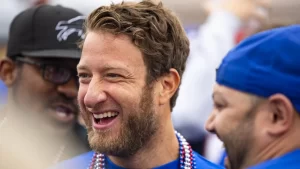 Eagles drove down and sealed their victory with a touchdown. Dave Portnoy, who claimed to have a “monster” wager on the game, immediately sounded off on Twitter in a fit of rage, taking aim at
Eagles drove down and sealed their victory with a touchdown. Dave Portnoy, who claimed to have a “monster” wager on the game, immediately sounded off on Twitter in a fit of rage, taking aim at  this hack is known as “credential stuffing.” Credential stuffing works by using stolen account information from an individual in order to access that same person’s accounts on other sites; in this case, DraftKings Sportsbook. As an example, if your username and password for your Netflix account was compromised at some point, it is likely that your username (often an email) and password are now in the hands of nefarious actors. Once these criminals have your name, email, and at least one password you have used in the past, they can then attempt to use that information to log in to other accounts, such as bank accounts and
this hack is known as “credential stuffing.” Credential stuffing works by using stolen account information from an individual in order to access that same person’s accounts on other sites; in this case, DraftKings Sportsbook. As an example, if your username and password for your Netflix account was compromised at some point, it is likely that your username (often an email) and password are now in the hands of nefarious actors. Once these criminals have your name, email, and at least one password you have used in the past, they can then attempt to use that information to log in to other accounts, such as bank accounts and  college basketball player will, or will not, score.
college basketball player will, or will not, score.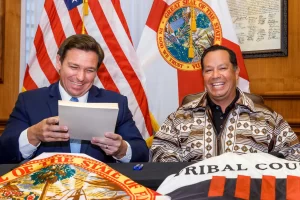
 interim. When Pinto’s suspension is concluded, he will be joining back up with the team right around the middle of the season. That is, if he is signed. Currently, Pinto is the
interim. When Pinto’s suspension is concluded, he will be joining back up with the team right around the middle of the season. That is, if he is signed. Currently, Pinto is the 

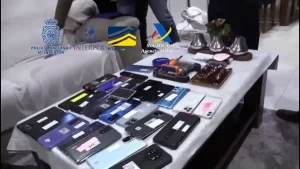 place bets on anything from handball, to soccer, and anything in between.
place bets on anything from handball, to soccer, and anything in between.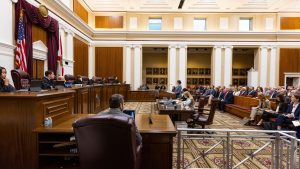 the Florida Seminole Tribe which would see online sports betting operations commence statewide, albeit with some interesting caveats. According to the pari-mutuel companies, the deal, or compact, violates a 2018 amendment to Florida’s constitution which stipulates that any expansion of gambling in the state must be voter-approved.
the Florida Seminole Tribe which would see online sports betting operations commence statewide, albeit with some interesting caveats. According to the pari-mutuel companies, the deal, or compact, violates a 2018 amendment to Florida’s constitution which stipulates that any expansion of gambling in the state must be voter-approved.